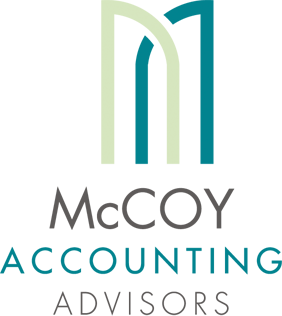[vc_row type=”in_container” full_screen_row_position=”middle” column_margin=”default” column_direction=”default” column_direction_tablet=”default” column_direction_phone=”default” scene_position=”center” text_color=”dark” text_align=”left” row_border_radius=”none” row_border_radius_applies=”bg” overlay_strength=”0.3″ gradient_direction=”left_to_right” shape_divider_position=”bottom” bg_image_animation=”none”][vc_column column_padding=”no-extra-padding” column_padding_tablet=”inherit” column_padding_phone=”inherit” column_padding_position=”all” background_color_opacity=”1″ background_hover_color_opacity=”1″ column_shadow=”none” column_border_radius=”none” column_link_target=”_self” gradient_direction=”left_to_right” overlay_strength=”0.3″ width=”1/1″ tablet_width_inherit=”default” tablet_text_alignment=”default” phone_text_alignment=”default” column_border_width=”none” column_border_style=”solid” bg_image_animation=”none”][vc_column_text]While the Paycheck Protection Program (PPP) has been a lifesaver for many small businesses impacted by the COVID-19 pandemic, the confusing application process and changing guidelines added to the roller coaster ride that business owners have been on since March. Now, as you turn your attention to your 2020 tax filings, the roller coaster ride isn’t quite over.
If you received a PPP loan, it will likely affect your business’s tax filing. But exactly how much is still being debated as the IRS rules continue to be fleshed out and Congress works to pass a second stimulus package. So, here’s a look at what you need to know now as you make year-end financial decisions.[/vc_column_text][vc_column_text]
Paycheck Protection Program (PPP) Loan Basics
[/vc_column_text][vc_column_text]First, let’s review the program itself. Passed in March as part of The Coronavirus Aid, Relief, and Economic Security (CARES) Act, the PPP was designed to deliver critical funding to help small businesses keep their employees on payroll and maintain cash flow. The PPP loans are forgivable as long as the business spent the money on specific expenses – primarily payroll, mortgage interest, utilities, and rent.
According to the CARES Act, a forgiven PPP loan amount won’t be included in your taxable income. However, clarifying guidance from the IRS spelled out that because the forgiven PPP loan amount won’t be included in a business’s taxable income, the expenses paid for with the loan money can’t be included as a tax deduction.
[/vc_column_text][vc_row_inner column_margin=”default” column_direction=”default” column_direction_tablet=”default” column_direction_phone=”default” text_align=”left”][vc_column_inner column_padding=”no-extra-padding” column_padding_tablet=”inherit” column_padding_phone=”inherit” column_padding_position=”all” background_color_opacity=”1″ background_hover_color_opacity=”1″ column_shadow=”none” column_border_radius=”none” column_link_target=”_self” gradient_direction=”left_to_right” overlay_strength=”0.3″ width=”1/1″ tablet_width_inherit=”default” column_border_width=”none” column_border_style=”solid” bg_image_animation=”none”][vc_column_text] [/vc_column_text][/vc_column_inner][/vc_row_inner][vc_column_text]
[/vc_column_text][/vc_column_inner][/vc_row_inner][vc_column_text]
2020 Tax Implications
[/vc_column_text][vc_column_text]With the IRS saying you can’t include tax deductions for payroll, rent, mortgage interest, or utility expenses that your business normally takes if the expenses were paid with PPP loan money, you might find yourself owing more in taxes.
Another wrinkle is the timing of your PPP loan’s forgiveness. In November, the IRS provided clarification stating that if you have a reasonable expectation that your PPP loan will be forgiven – even if the forgiveness comes after 2020 – you should not claim any expenses paid for with PPP money when calculating your 2020 taxes.
Between now and tax season, things could change. The IRS guidelines are not popular, with many – including the American Institute of Certified Public Accountants – saying they go against the intent of the PPP. Plus, the current stimulus program being considered by Congress may reverse the decision and make the expenses deductible.
Until then, it’s wise to determine the potential impact on your taxes and make decisions before the end of the year to reduce your tax liability if your deductions will be limited. McCoy Accounting Advisors is here to help. We can calculate your tax liability for both scenarios and help you make informed financial decisions. Contact us today to schedule a complimentary consultation.[/vc_column_text][/vc_column][/vc_row]

